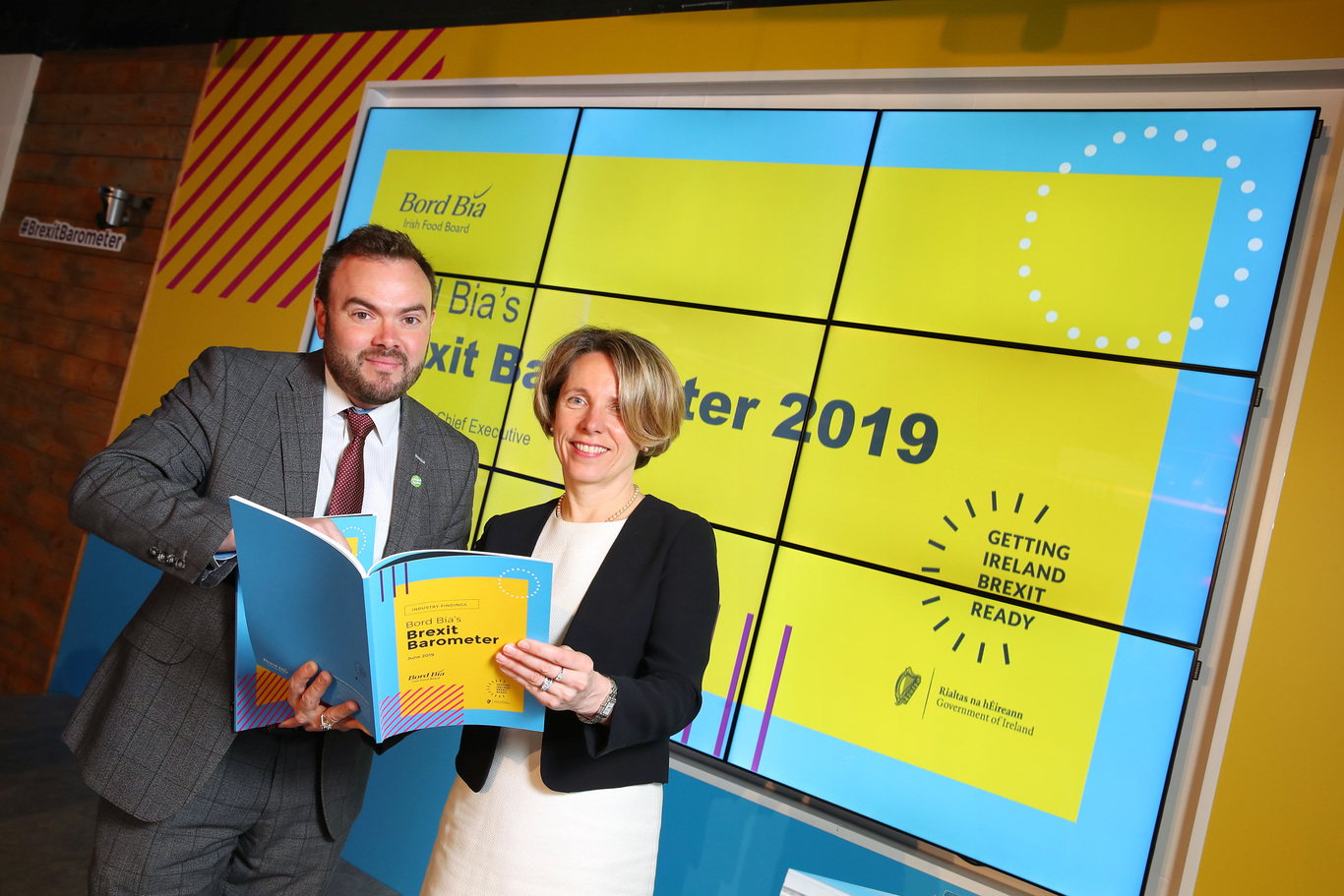Irish food companies are accelerating Brexit preparations as a no-deal 'cliff-edge' looms
Many companies are stockholding weeks worth of goods.
THE IRISH FOOD and Drink industry is accelerating its preparations for Brexit amid the return to prominence of a ‘cliff edge’ no deal Brexit scenario, according to the latest Brexit Barometer from Bord Bia.
The Barometer is put together using data collected from 130 Irish food, drink and horticulture companies between April 1 and May 17 2019.
Over the past year, the food board noted what it called a “transformation in levels of preparedness”. This was largely driven by the expectation for much of 2018 that an agreement was finally in sight combined with the return of the possibility of a no-deal Brexit when it became clear that this agreement would not be concluded.
“It was an experience that left Irish exporters in no doubt that their future trading relationship with UK customers needed to be addressed sooner rather than later,” Tara McCarthy, the chief executive of Bord Bia, said in the report.
The survey is in its third year. In 2018, 20% of respondents said that they had made “clear progress” in their preparations for Brexit while this year, that figure rose to 65%.
Despite the uncertainty around Brexit, food and drink exports to the UK from Ireland hit a record €4.5 billion. Britain accounted for 37% of all Irish food and drink exports last year.
Stockholding
With unpredictability looming large, 68% of companies surveyed said they were uncertain of the impact Brexit would have on their businesses.
As a result, 70% of Irish companies are preparing contingency options for holding stock in the case of a no-deal Brexit – double the figure of last year.
While alcohol, dairy and prepared consumer foods – like ready-meals – are particularly active on this front, the more perishable horticulture sector is the most exposed.
Many companies are also holding stock in other European countries – in case of issues with the UK landbridge.
More than half of companies surveyed are holding up to three weeks of stock, while 14% are holding 12 weeks or more, as contingency measures.
Launching the report today, Food Minister Michael Creed said:
“The coming months will bring another Brexit deadline, but it is encouraging to see that our industry is doing all it can to prioritise what it can control in facing these challenges.”
Coming up to the current October Brexit deadline, stockholding will become more complicated logistically due to storage being at full capacity and the beginning of the busy Christmas period.
The food board warned that ”additional time to prepare should not be wasted”.
Supply chain
Despite increased preparedness, companies are growing more concerned with the cost of customs compliance and stockholding. Another concern is potential weak links in supply chains.
More than 20% of those surveyed said they have changed their raw material and input sourcing away from the UK – largely to within the EU – as a result of Brexit.
However, in some cases changing sources is not an option.
“A small cohort of businesses called out their UK glass jar manufacturer as a critical supplier and added that an EU supplier was not an option due to glass production being at full capacity in mainland Europe. This is principally due to the move towards glass and away from plastics for environmental reasons.”
Just under three quarters of respondents are actively seeking to diversity into new markets.
Get our Daily Briefing with the morning’s most important headlines for innovative Irish businesses.






